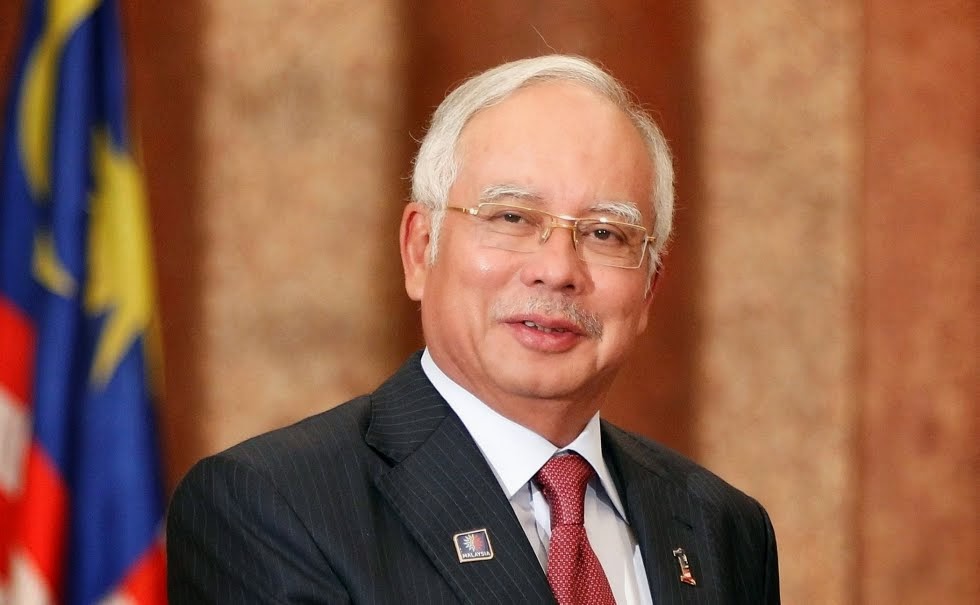When one contemplates the texts on fasting, its wisdom and goals in Shariah (Islamic Law), and looks at the reality of the Muslim communities, one realizes a wide gap between the reality and our obligations.
Remember that Ramadan is a bounty that Allah (SWT) blessed His servants with, to strengthen their faith, and increase their piety (Taqwa). Allah (SWT) said: "O you who believe! Fasting is prescribed for you as it was prescribed for those before you, that you may become pious." (Holy Quran 2:183)
This is an attempt to present the essential causes of this gap and to some remedies. Primary reason for the gap is ignorance about the goals of fasting and the wisdom behind it. Many Muslims ignore the purpose and wisdom of fasting. Fasting is done merely to conform to the social environment without contemplation. If one is not aware of the divine wisdom of Shariah (Islamic Law) and its fruits in this world and in the hereafter, one will not apply it in the right way.
Goals of Ramadan Fasting:
Achieving piety (Taqwa): is one of the most important wisdom of fasting. Fasting brings on Taqwa as it lessens the desire of the stomach and mutes the sexual appetite. Whoever fasts frequently would overcome these two desires more easily. This deters against committing abominations and sins and assists in controlling life leading to Taqwa.
Strengthening willpower and acquiring patience: Holy Prophet Muhammad (saww) called Ramadan the month of patience as it increases one's will power to control his desire and the selfishness of his soul. This training allows him to be strong in following Allah's commands. The most important being to carry the Message and propel it forward. The person trains himself to be patient in obeying Allah (SWT) by stopping at the limits set by Allah (SWT) both by way of action and abstention. Allah (SWT) said: "These are the limits set by Allah, so approach them not." (Holy Quran 2:187)
Fasting is pure worship: The fact that he is abstaining from food and drink both in public and in secret shows his honest faith and strong love of Allah (SWT) and his knowledge and feeling that Allah (SWT) is all-knowing of everything. For this reason Allah (SWT) has made the reward for fasting greater than for any other type of worship. Allah (SWT) said in the hadith Qudsi: "Every deed of the son of Adam will be multiplied [in rewards], the good deed by ten of its like, up to seven hundreds, up to whatever Allah wills, except fasting, it is for Me and I will reward it. He abandons his desire and his food for My sake.." (Related by Muslim) lbn al-Qayyim said: "...And people may see that a person is not eating in front of them, but the fact that he is really abandoning his food and his desire for the sake of God is a thing that nobody can find out about, and that is the essence of fasting." (Zaad al-Ma'ad 2/29)
Relieving Muslims from life's distractions: Eating, drinking, and socializing all distract a person and weaken ties with Allah (SWT). It is by the Mercy of Allah (SWT) that Muslims are ordered to fast so as not to be bothered by the intrusion of these activities. Nor by the thought about them nor the anticipation for them when devoting themselves to the all types of worship either reading the Holy Quran, offering additional prayer or making Itikaf. For this reason Holy Prophet Muhammad (saww) said: "Fasting is a shield, and a secure fortress against Hell fire" (Related by Ahmad)
Discovering Allah's Blessings: A person experiences the hardship of the poor. He should then be thankful to Allah (SWT) Who has blessed him with His bounty while others are deprived. This should make him more sympathetic and willing to share this bounty. The poor rediscovers that fasting helps a person be more devoted to worship. More able to concentrate and meditate. He should then be able of this devotion all year long, a blessing he should thank Allah (SWT) for.
Acquiring strength and endurance: It has been discovered that depriving the body of food for a period of time helps its defense and endurance mechanism. This in turn this protects the body from certain diseases.
Remember that fasting is not only dependent on abstentions: Many believe that fasting consist only of certain abstentions, forgetting that Allah (SWT) established certain acts of worship with fasting. Among which are:
Qiyamul Lail: Holy Prophet Muhammad (saww) said: "Whoever performed the night prayer during Ramadan out of belief and anticipating God's rewards, will be forgiven his previous sins." (Related by Muslim) Performing Umrah: The Holy Prophet Muhammad (saww) said: "An Umrah during Ramadan is like a Hajj with me." (Related by al-Hakim)
Offering Iftar (meal) to those who fasted. Holy Prophet Muhammad (saww) said: "Whoever feeds a fasting person has the same reward as him, except that the reward of the fasting person will not be diminished." (Related by Ahmad)
Reading and completing the Holy Quran: Holy Prophet Muhammad (saww) said, "Fasting and [reading] Holy Quran will intercede for the person: fasting will say: O Lord I forbade him eating and drinking so let me intercede for him, and the Holy Quran will say: I deprived him from his night sleep so let me intercede for him," he then said: "So they will intercede." (Related by Ahmad) Holy Prophet Muhammad (saww) used to recite the whole Holy Quran to Angel Jibreel (Gabriel) each Ramadan.
Giving in charity: Ibn Abbas radhiallahu anhu said: "Holy Prophet Muhammad (saww) was the most generous among people, and he was more generous during the month of Ramadan." (Related by Muslim)
Itikaf: which is to confine oneself in the masjid for prayer and invocation leaving the worldly activities. Ibn Abbas radhiallahu anhu said: "Holy Prophet Muhammad (saww) used to perform Itikaf during the last ten days of Ramadan." (Related by Muslim) It is surprising that many people have abandoned Itikaf though Holy Prophet Muhammad (saww) never abandoned it from the time he arrived to Madinah until he died.
Supplication: In the verses dealing with fasting, Allah (SWT) said: "And when My slaves ask you (O Muhammad) concerning Me, then answer them, I am indeed near to them. I respond to the invocations of the supplicant when he calls on Me." (Holy Quran 2: 186). This is an encouragement for the fasting person to increase his invocation. Holy Prophet Muhammad (saww) said: "Three invocations will be answered: The invocation of the fasting person, the invocation of the oppressed, and the invocation of the traveler." (Related by Muslim)
Repentance: Ramadan is the time of repentance and return to Allah (SWT), for it is a time when the devils are chained, and when many people are saved from hell fire every night by the grace of Allah (SWT).
Abstaining from vain talk: Sins decrease the reward of fasting although they do not annul it. Holy Prophet Muhammad (saww) said: "Fasting is not [only] abstaining from eating and drinking, but abstaining from vain and obscene talk, so if someone insulted you or wronged you say: I am fasting." (Related by al-Hakim) and he also said: 'Whoever does not abandon lying, and then Allah does not need him to abandon his food and drink." (Related by al-Bukhari)
Common errors made during Ramadan:
Excessive spending: Ramadan should be a time to avoid being wasteful, and learning to be prepared in facing harder times by distinguishing the needs from the luxuries. Unfortunately, many people go beyond their limits to spend during Ramadan. Whether in the varieties of food that they savor each night, or by the other types of spending.
Staying awake during the night and sleeping during the day: Some people sleep during most of the day when they are fasting. Ramadan is not a time of being lazy, and this does not allow the full benefit from the experience of fasting. It is as if they have only inverted their nights into days and vice versa. In addition, some may spend a great portion of the night indulging in eating and drinking and socializing.
Spending more time in socializing: Because people invite each other more often during Ramadan they do tend to spend more time socializing with friends, and relatives. While it is a good deed to feed the fasting person, this should not result in precious time lost in vain talk. Use the occasion for remembering Allah (SWT) and offering additional prayers.
Reading Holy Quran too fast: Some insist on finishing the whole Holy Quran once or more, even if they have to read very fast. Although reading the Holy Quran many times is desirable, this should not be done hastily, without pondering upon its meaning. Allah (SWT) said: "This is a Book which We have sent down to you, full of blessings that they may ponder over its verses." (Holy Quran 38:29)
Socializing in Itikaf: Many people are eager to do Itikaf but some confine themselves in the Masjid not to pray and worship Allah (SWT) but to talk and socialize.
The ways of doing good are numerous in Ramadan. Many people try to perform more than they are able to. By going beyond their capabilities, they end up not performing any deed in the desired way.
Scholars and Preachers should assume a more prominent role in educating the people - both by talking to them and by giving the best example in their behavior which should comply to the Shariah (Islamic Law) and following the Sunnah.
The Muslim should realize that his priorities dictate that he does what benefits him in the Hereafter and should not put worldly interests first.
The Muslim should apply himself to deepen his sense of following the Sunnah of Holy Prophet Muhammad (saww), in every aspect of his life, at all times and especially during the month of Ramadan. This necessitates seeking more knowledge about the Fiqh of fasting and its etiquette, assimilating the wisdom and goals of fasting, and facilitating the means that allow all the Muslims to benefit from their fasting.




























No comments:
Post a Comment